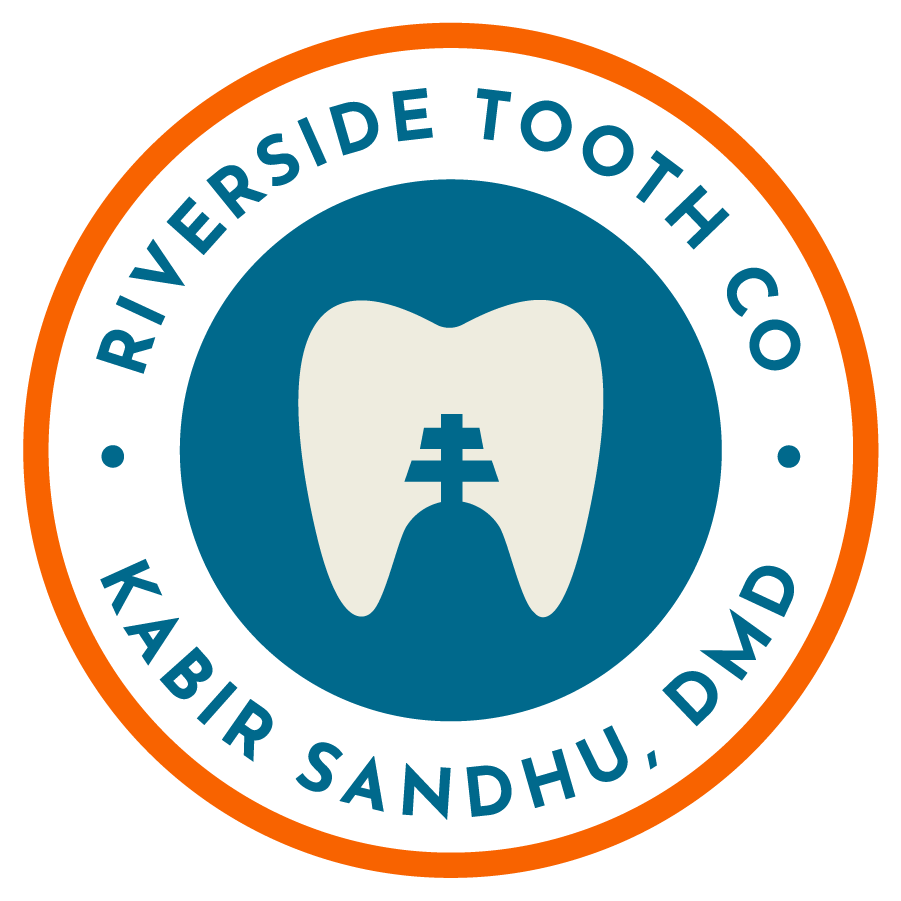Scaling and Root Planing in Riverside, CA
Scaling and root planing, also known as deep cleaning, is a non-surgical periodontal therapy procedure used to treat gum disease. It targets the areas below the gumline, where plaque and tartar buildup can lead to inflammation and infection.
During scaling, your dentist or dental hygienist will use special instruments to remove the built-up plaque and tartar from your teeth surfaces and roots. This thorough cleaning reaches deeper than a regular cleaning, allowing for better healing of inflamed gums. Root planing smooths out rough surfaces on the roots of your teeth. This helps prevent further plaque buildup by making it harder for bacteria to adhere to the surface of your tooth roots.
By addressing gum disease early through scaling and root planing, you can reduce inflammation, promote healthier gums, and potentially avoid more invasive treatments like surgery down the road. Talk to your Dentist in Riverside, CA about whether this treatment option is right for you!
The Procedure of Scaling and Root Planing
Scaling and root planing is a non-surgical procedure that plays a crucial role in treating gum disease. It involves deep cleaning of the teeth and gums to remove plaque, tartar, and bacteria from below the gumline.
The procedure starts with numbing the area using local anesthesia to ensure maximum comfort for the patient. Then, a dental professional uses special tools called scalers and curettes to scrape away the built-up plaque and tartar from the tooth surface and roots. These instruments reach deep into pockets around the teeth to eliminate any infection-causing bacteria. During scaling, ultrasonic devices may also be used to effectively remove stubborn deposits on the teeth. These devices use vibrations along with water irrigation to break up plaque and tartar without causing damage to healthy tissues.
Root planing follows scaling, where rough spots on tooth roots are smoothed out. This helps prevent further accumulation of bacteria in these areas while promoting healing of gum tissue against clean surfaces.
Depending on the extent of gum disease, multiple appointments might be necessary for complete treatment. After each session, patients are given instructions on proper oral hygiene techniques at home as well as prescribed medications if needed.
By undergoing scaling and root planing regularly, patients can effectively manage their gum disease by reducing inflammation, preventing bone loss, improving overall oral health, and avoiding more invasive treatments like surgery or tooth extraction. Remember that only a qualified dentist or periodontist can determine whether you need scaling and root planing based on your specific condition. So, if you suspect signs of gum disease such as bleeding gums or persistent bad breath, it's essential to seek professional advice promptly for timely intervention.
Recovery and Aftercare
Recovery and aftercare play a crucial role in the success of scaling and root planing. After undergoing this treatment, it's important to take care of your gums and teeth to ensure optimal healing and maintain good oral health.
Immediately after the procedure, you may experience some discomfort or pain, which can be managed with over-the-counter pain relievers recommended by your dentist. It is normal to have mild swelling or bleeding for a few days following the treatment.
To aid in the healing process, it is essential to practice proper oral hygiene. This includes brushing gently twice a day with a soft-bristled toothbrush and using an antimicrobial mouth rinse prescribed by your dentist. Flossing should also be done daily but with caution around treated areas. It is advised to avoid any hard or crunchy foods that could potentially irritate the gums during the recovery phase. Opt for softer foods that are easier to chew until your gums have fully healed. Regular dental check-ups are vital during this time as well. Your dentist will monitor your progress, remove any remaining plaque or tartar buildup, and provide further guidance on maintaining oral hygiene at home.
Remember that each person's recovery timeline may vary slightly depending on individual factors such as overall health and severity of gum disease. Be patient with yourself throughout this process, as healthy gums require consistent care and maintenance. By following these post-treatment guidelines diligently, you can ensure better long-term results from scaling and root planing while reducing the risk of reinfection or complications down the road.
Benefits of Scaling and Root Planing
Maintaining good oral health goes beyond just brushing and flossing regularly. Sometimes, despite our best efforts, plaque and tartar can build up on our teeth and below the gum line. This can lead to gum disease if left untreated. Fortunately, scaling and root planing is a highly effective treatment option that offers several benefits.
- One of the main benefits of scaling and root planing is that it helps to eliminate harmful bacteria from the mouth. By removing plaque and tartar buildup, this procedure greatly reduces the risk of developing gum disease or preventing its progression.
- Additionally, scaling and root planing can help improve overall oral health by promoting healthier gums. It removes any irritants that may be present on the tooth's surface or in pockets beneath the gums. This allows for better healing of damaged tissues and improved attachment between teeth and gums.
- Another advantage is that scaling and root planing can prevent tooth loss caused by advanced gum disease. By addressing early signs of gum disease through this deep cleaning procedure, you are effectively protecting your teeth from further damage or loosening due to infection.
- Furthermore, having regular scaling and root planing treatments can also enhance your overall well-being since there is a strong link between oral health conditions such as gum disease and certain systemic diseases like heart disease or diabetes.
Scaling and root planing provides numerous benefits for maintaining optimal oral health. From eliminating harmful bacteria to improving periodontal health, this important dental procedure plays a crucial role in preserving healthy smiles for years to come!
Periodontal Therapy For Gum Disease
Periodontal therapy, also known as gum disease treatment, is a vital aspect of dental care aimed at addressing and managing various periodontal conditions. These conditions can range from mild cases of gingivitis to more severe forms such as periodontitis. Periodontal therapy refers to the comprehensive approach taken by dental professionals to combat these issues effectively. It involves meticulous evaluation and diagnosis of the patient's oral health, including an assessment of gum tissue, teeth mobility, and bone structure through X-rays and other diagnostic tools. Once identified, the specific treatment plan is tailored to meet each individual's unique needs. Periodontal therapy often encompasses non-surgical procedures like scaling and root planing for deep cleaning below the gumline while removing plaque buildup and calculus deposits that contribute to infection. Additionally, in certain cases where surgical intervention becomes necessary due to advanced stages or complex situations, such as pocket reduction surgery or bone grafts may be recommended. To ensure patients achieve optimal oral health outcomes, regular follow-up appointments are scheduled for monitoring progress and maintaining proper maintenance care over time under professional guidance.
Conclusion
Scaling and root planing is a vital dental procedure that can effectively treat gum disease and help restore the health of your gums. By removing plaque, tartar, and bacteria from the teeth and gums, this treatment can prevent further damage and promote healing.
During scaling and root planing, your dentist will thoroughly clean below the gumline to remove any debris or infection. This deep cleaning process may require multiple visits depending on the severity of your condition.
After undergoing scaling and root planing, it's important to follow proper aftercare instructions provided by your dentist. This includes practicing good oral hygiene habits at home, such as brushing twice a day, flossing daily, using antibacterial mouthwash, and attending regular dental check-ups.
By taking proactive steps towards treating gum disease through procedures like scaling and root planing, you'll be well on your way to maintaining a healthier mouth for years to come! So prioritize regular dental visits along with consistent at-home care – because prevention is always better than cure when it comes to oral health! For the best dental care customized to your needs, visit Riverside Tooth Co. at 6886 Indiana Ave Suite B, Riverside 92506, or call (951) 686-2565.
Contact Us
6886 Indiana Ave Suite B,
Riverside, CA, CA, 92506
Email: info@riversidetoothco.com
Phone: (951) 686-2565
Working Hours
MON8:00 am - 5:00 pm
TUE - THU9:00 am - 6:00 pm
FRI7:00 am - 12:00 pm
SAT - SUNClosed









































